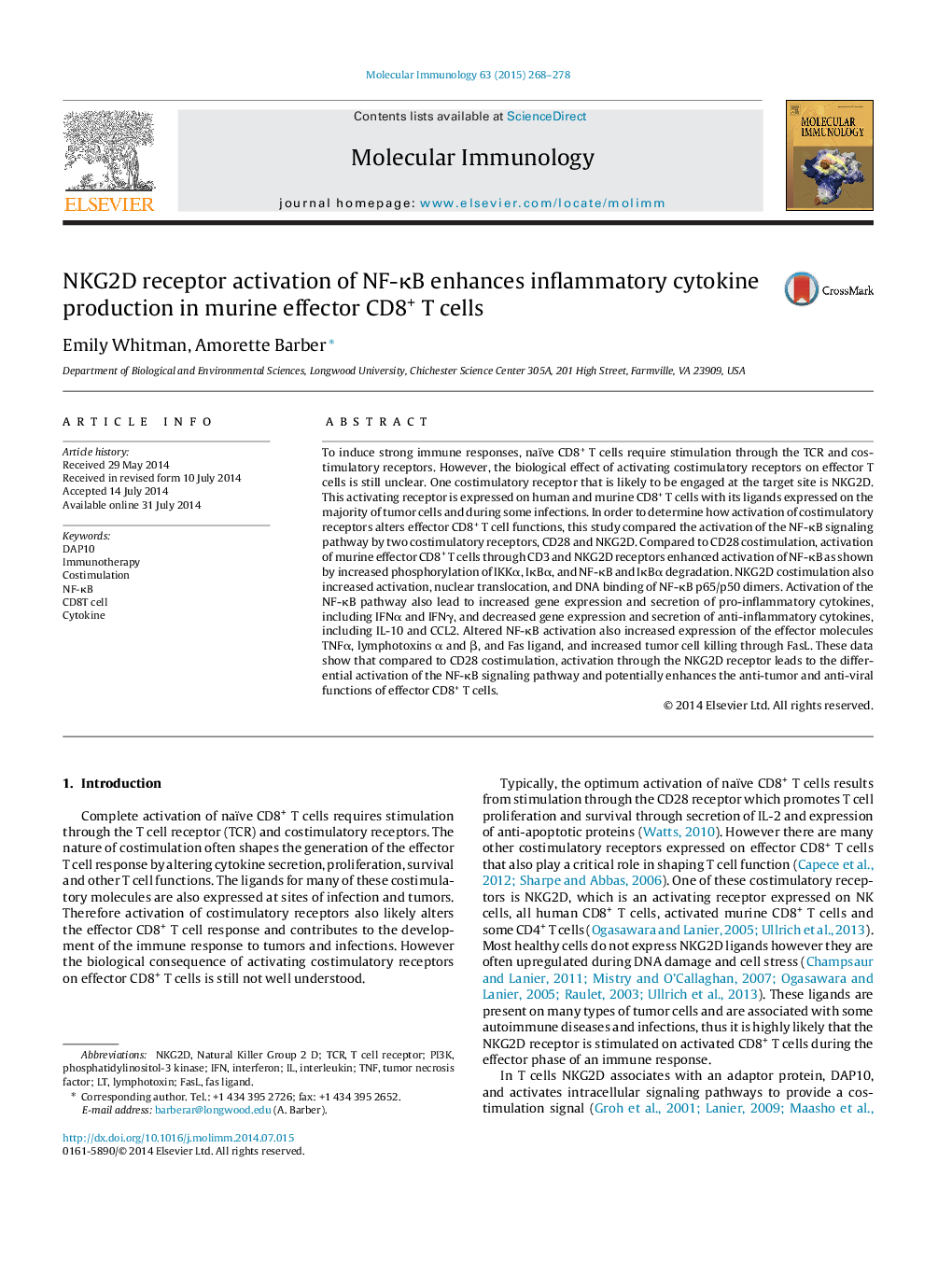| Article ID | Journal | Published Year | Pages | File Type |
|---|---|---|---|---|
| 2830711 | Molecular Immunology | 2015 | 11 Pages |
•NF-κB pathway was compared in effector CD8T cells stimulated by NKG2D or CD28.•NKG2D stimulation increased activation of NF-κB p65/p50 dimers.•NF-κB activation altered cytokine secretion in NKG2D-stimulated T cells.•NKG2D stimulation increased tumor cell killing by increasing FasL.•NKG2D costimulation enhances effector T cell functions.
To induce strong immune responses, naïve CD8+ T cells require stimulation through the TCR and costimulatory receptors. However, the biological effect of activating costimulatory receptors on effector T cells is still unclear. One costimulatory receptor that is likely to be engaged at the target site is NKG2D. This activating receptor is expressed on human and murine CD8+ T cells with its ligands expressed on the majority of tumor cells and during some infections. In order to determine how activation of costimulatory receptors alters effector CD8+ T cell functions, this study compared the activation of the NF-κB signaling pathway by two costimulatory receptors, CD28 and NKG2D. Compared to CD28 costimulation, activation of murine effector CD8+ T cells through CD3 and NKG2D receptors enhanced activation of NF-κB as shown by increased phosphorylation of IKKα, IκBα, and NF-κB and IκBα degradation. NKG2D costimulation also increased activation, nuclear translocation, and DNA binding of NF-κB p65/p50 dimers. Activation of the NF-κB pathway also lead to increased gene expression and secretion of pro-inflammatory cytokines, including IFNα and IFNγ, and decreased gene expression and secretion of anti-inflammatory cytokines, including IL-10 and CCL2. Altered NF-κB activation also increased expression of the effector molecules TNFα, lymphotoxins α and β, and Fas ligand, and increased tumor cell killing through FasL. These data show that compared to CD28 costimulation, activation through the NKG2D receptor leads to the differential activation of the NF-κB signaling pathway and potentially enhances the anti-tumor and anti-viral functions of effector CD8+ T cells.
